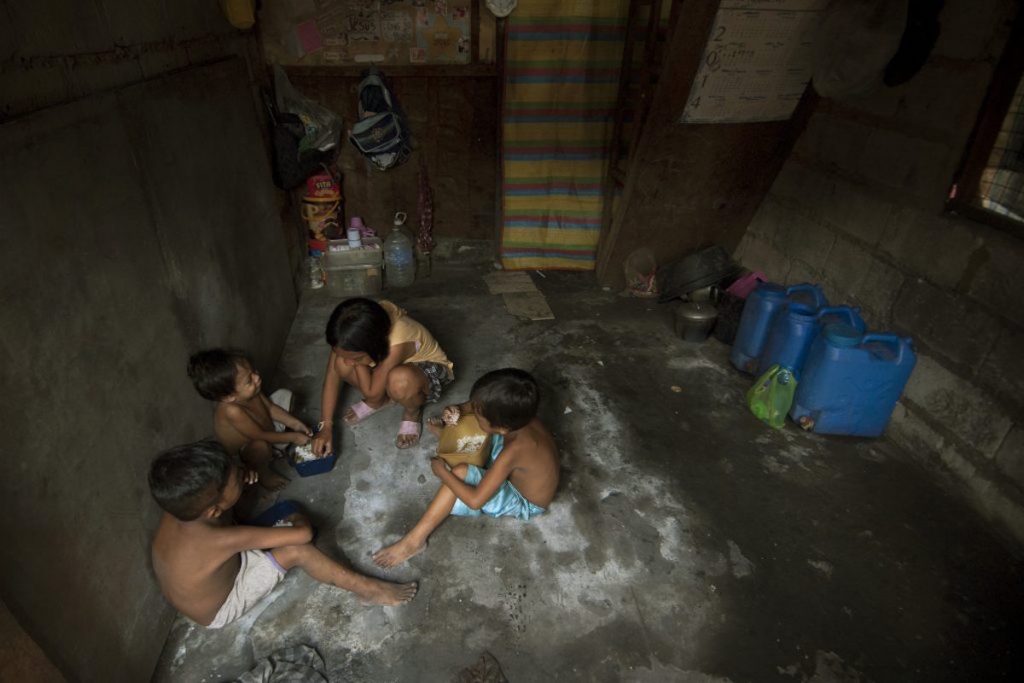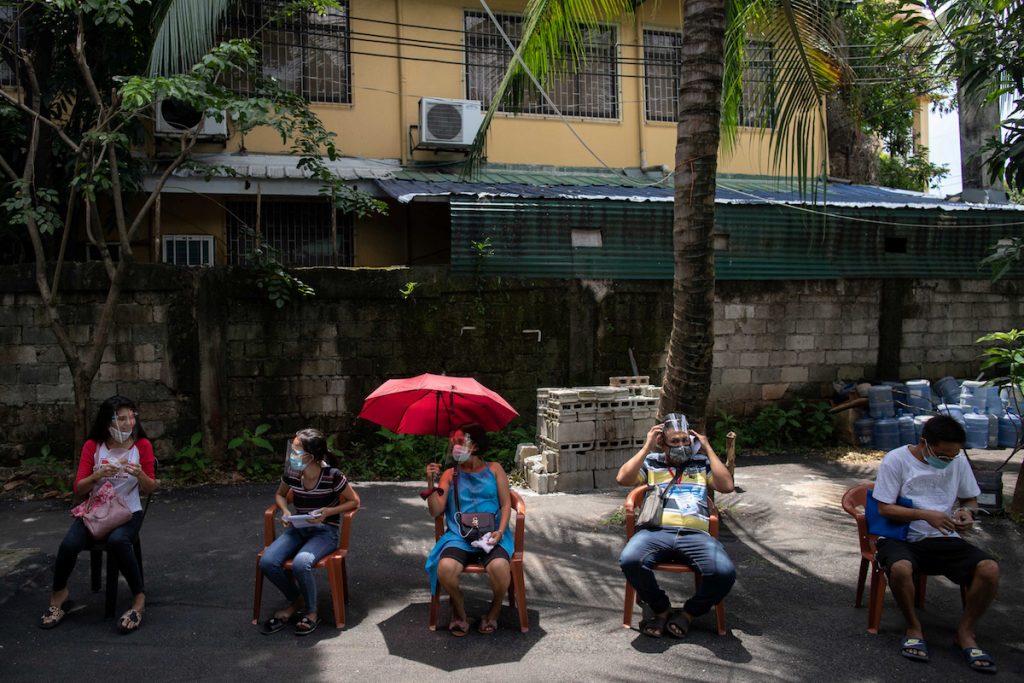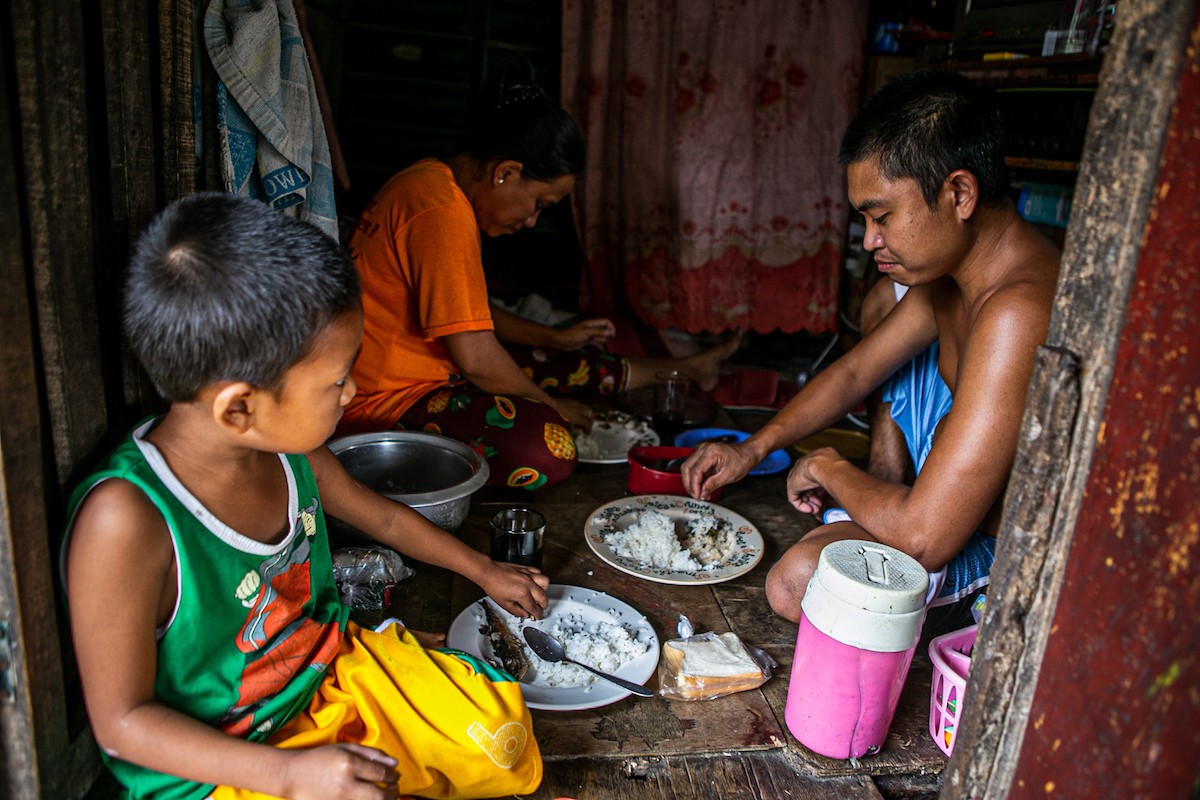Church leaders in the Philippines called for transparency in government spending as a new survey revealed that more Filipinos are getting hungry amid the coronavirus pandemic.
Results of a Social Weather Stations survey released Sept. 28 showed a record-high hunger incidence of 30.7 percent — the highest rate since the previous peak of 23.8 percent in 2012.
The results of the survey indicated that about 5.5 million families have experienced moderate hunger or suffered hunger involuntarily once or a few times in the last three months.
At least 2.2 million families claimed to have experienced severe hunger, or those who suffered hunger often or always in the last three months.
Bishop Broderick Pabillo, apostolic administrator of the Archdiocese of Manila, described the survey results as “very alarming.”
He said policies to combat hunger should be the government’s priority, but noted that addressing hunger is not reflected in the proposed government budget in Congress.
The prelate said that the government instead implemented projects that do not provide solutions to the people’s primary problems.
He said the millions of funds that were spent on the “beach nourishment” project on Manila Bay could have fed millions of starving Filipinos.
“It is the people who need nourishment,” said the prelate.
Early this month, the country’s Department of Environment spent over US$8 million for the Manila Bay beautification project by dumping dolomite sand on the beach.
Alarming situation
Father Anton Pascual, executive director of Caritas Manila, said the survey results are “alarming” and the situation is “socially volatile.”
He said poor countries “will have a double whammy of health and economic dilemma.”
“The government has to provide food provision to the poor during the quarantine or the situation would be dangerous as people become hungry and their children malnourished,” said the priest.
He said the poorest of the poor are “more afraid of hunger than the virus.”

Bishop Gerardo Alminaza of San Carlos, vice chairman of the social action secretariat of the bishops’ conference, said the Church will continue to journey and assist the people especially during this time.
“As in the past, we continue to journey with our people especially those in the margins through our social action centers in order to at least lessen as much as we can the impact of this global health crisis,” he said.
The prelate renewed his call to the public to “tighten our belt so we can care for the poor and our common home.”
Transparency needed
Bishop Arturo Bastes, retired prelate of Sorsogon, said the government needs to be more transparent about how and where it puts taxpayers’ money, especially in its response to the pandemic.
He said the country’s economy has been deeply affected by the pandemic but “added to our misery is the corruption in government offices.”
The bishop said authorities “must find ways to feed our hungry countrymen by avoiding useless projects that cost an enormous amount of money.”
The prelate urged Congress to legislate laws that will “rescue the poor” from involuntary hunger.
“Our leaders are not intelligent and sensitive enough to feel our problems and seemingly do not care if our people continue to suffer hunger and want,” Bishop Bastes said.
In August, President Rodrigo Duterte admitted that the government had run out of funds to give cash assistance to Filipinos amid the COVID-19 pandemic.
“The money given by Congress has been spent to give you aid. I no longer have that. You’re on your own. That’s true. You have to get out and work so you can eat,” said the president.

Bishop Felixberto Calang of the Philippine Independent Church blamed the “government’s failure” to address the economic and social impact of the global health crisis for the high hunger incidence.
The prelate said the government approach in battling these impacts “is misplaced.”
“The government must rebuild the economy by prioritizing the needs of the poor,” he said, adding that it should also put its attention to pre-existing social problems.
Bishop Calang urged authorities to “give preference to small farmers to exploit the fertile land rather than destroying the land through mining, commercial plantation, and land conversion.
He said most of the government’s policies “do not address the needs of the Filipinos but only answer to corporate interests.
The new SWS hunger incidence survey was conducted from Sept.17 to 20 with 1,249 respondents nationwide.
The 30.7 percent hunger incidence has surpassed the previous record of 23.8 percent in March 2012 and 20.9 percent in July this year.
The nationwide poll was conducted through mobile phone and computer-assisted telephone interviewing.







